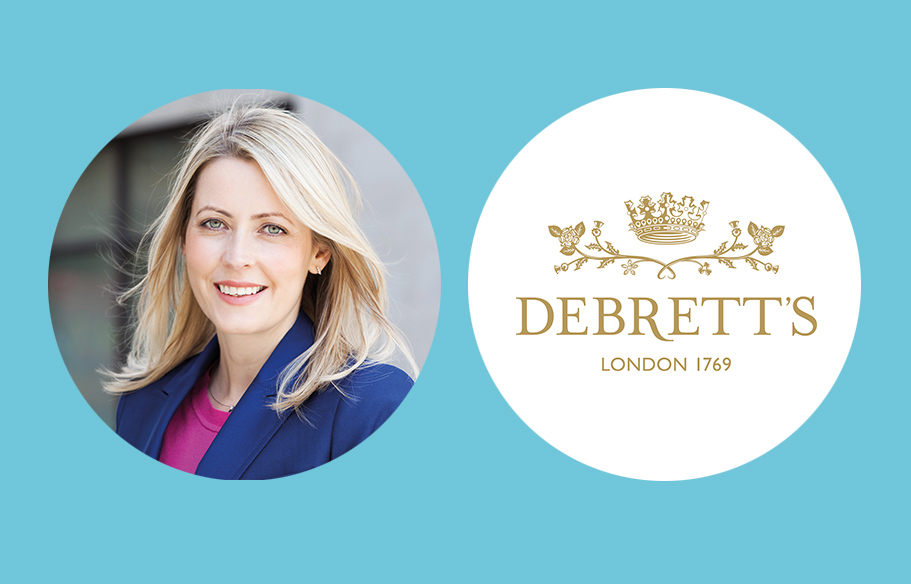I feel very privileged to be the CEO of Debrett’s, especially given its heritage and status in recognising achievement for over two centuries. The business was formed in 1769 and will celebrate its 250th anniversary in just four years’ time. When you’re leading and managing a company with such a rich history and prestigious brand, I think you should feel a certain weight of responsibility. In many ways, I see myself as a custodian of Debrett’s, stewarding and nurturing it for future generations. Yes, it is my job to look after the bottom line and make sure the business develops commercially, but over and above that, I feel it my duty to protect and manage the Debrett’s brand. When the time comes for me to hand the reins to somebody else, I want to ensure Debrett’s is in the best possible shape it can be. What this means is that decisions I make to evolve and expand the business are never taken lightly – and during my three-year tenure I like to think I’ve made the right choices.
As with any business, one of the biggest challenges I face is making sure Debrett’s is relevant in the 21st century, in a world that is ever changing and increasingly globalised. Etiquette remains the essential foundation of Debrett’s, of who we are, what we do, and how we teach and educate, but many people ask me if it’s still relevant. The short answer to that question is unequivocally ‘yes’, it is still relevant – and arguably more so than it was 200 years ago. Back then, there was a very clear set of rules and codes to which people were expected to adhere, and that constituted ‘good etiquette’. Today, because we live in such a cosmopolitan and more egalitarian age, customs and manners are much less prescriptive and we seek to embrace cultural diversity as a society. For me, this places even greater importance on education and understanding other perspectives, and calls for a discussion of accepted social norms and how we better communicate. My passionate belief is that Debrett’s can contribute to helping make our society fairer, more compassionate and more inclusive.
In the 21st century, etiquette embraces emotional intelligence and showing respect and understanding for different cultures. As a result, much of what we teach in the Debrett’s Academy (our etiquette classes run for businesses and individuals, both young and not so young!) focuses on ‘soft skills’. It is a startling figure, but research shows soft skills are worth £88 billion to the UK economy, and they really are essential building blocks for establishing trust and rapport, for influencing and, most importantly, communicating effectively. In a world where it sometimes feels like technology is taking over our lives, people still buy goods and services from other people, so building good relationships remains as important as ever.
Debrett’s has also always celebrated achievement and recognised those that make a positive difference. Contrary to what some people may think, this isn’t just about the ruling elite. True, we started back in 1769 with the Peerage and Baronetage, an enduring title that we still publish and one that in part has earned Debrett’s the title of ‘the original social network’. Today, through our renowned registers such as People of Today and the Debrett’s 500, we celebrate those from all walks of life – people who have achieved great things, inspired and influenced others and who truly make a difference. Background and social standing is completely irrelevant. Just take a look at our last Debrett’s 500 list. Yes, it includes established luminaries such as Tony Blair and Richard Branson, but it also features more unexpected individuals like teen blogging sensation Zoe Suggs and many unsung heroes from diverse walks of life.
To move Debrett’s forward, we have added new divisions and revenue streams developing and expanding the business in this way has been one of the most complex things I’ve overseen at Debrett’s. It all comes back to protecting the brand and ensuring we ‘do right’ by it.
The latest extension to the Debrett’s portfolio will be coming in autumn with the launch of Debrett’s Weddings. Every year we are inundated with etiquette questions from members of the public (we receive roughly 10,000 in any given 12-month period) and a very high percentage of these relate to weddings. Our expertise in the wedding etiquette arena is unrivalled – we really do know exactly how the perfect ‘big day’ should play out – which is why we are soon launching a Debrett’s wedding planning service. With the new service we’ll plan and take care of all elements for any kind of wedding our discerning customers want. This is one of many new initiatives that I hope we get right to protect the ever-evolving story of Debrett’s.
 Joanne qualified in law and began her career at global accountancy firm, Arthur Andersen where she specialised in corporate finance. She subsequently joined Royal Bank of Scotland Leveraged Finance before moving into private equity with Lloyds Development Capital. While at LDC Joanne worked in the Hong Kong office, investing in management buy-outs in China in retail and education. Joanne joined Debrett’s as Chief Executive in July 2012 and has since led a regeneration of the iconic British brand as well as its expansion globally.
Joanne qualified in law and began her career at global accountancy firm, Arthur Andersen where she specialised in corporate finance. She subsequently joined Royal Bank of Scotland Leveraged Finance before moving into private equity with Lloyds Development Capital. While at LDC Joanne worked in the Hong Kong office, investing in management buy-outs in China in retail and education. Joanne joined Debrett’s as Chief Executive in July 2012 and has since led a regeneration of the iconic British brand as well as its expansion globally.



